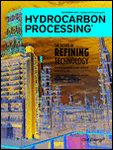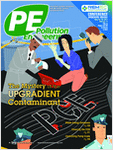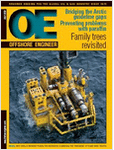6 Beautiful Refinery Photos
Friday, May 28, 2010





 What do you think of it?
What do you think of it?If you have gorgeous chemical engineering related photos, why not email it to me? I'll publish it in this blog and Chemical Engineering Rocks Facebook group. I'll give you all the credit for it.
-------------------------------------------------------------------




Have you downloaded my free "Choosing Alternative Fuel" Ebook? If not, then please download it here. It's Free and on top of getting the free ebook, you'll get eCourse on Alternative Fuel. It's a good and easy way to add more valuable information to yourself.
Labels: Chemical Engineer, Chemical Engineering
posted by Kipas Repair JB @ 8:25 PM,
,
![]()
Professional Chemical Engineer - A story... Part 2
Wednesday, May 26, 2010
My mentor explained that my log book record looks the same each and every month and that is not good for my training. I need to get other projects and get more exposure. I can't rely just on my responsibility to ensure my plant is running smooth. That ain't enough.
Coincidentally, I have applied a position as a lecturer in 2 local public university in Malaysia. For the first one, I attended an interview in University Malaysia Pahang (UMP) at the end of 2007. Earlier, I was invited to join the faculty several times by the Chemical Engineering Faculty dean at that time within a space of 3 years (if I'm not mistaken). I only responded and submitted my application in the third quarter of 2007. I hesitated to join the academic force in that university several times mainly because I don't want to be away from my family who is already based in Johor Bahru. My wife is already working as a chemical engineering lecturer in Universiti Teknologi Malaysia (UTM), Skudai, Johor. If I accept the job as lecturer in UMP, I'll be 300 km apart from my family. That's the main reason I hesitated to join UMP. However, since the dean offered me a senior lecturer position, I kept thinking and thinking...
After a while, I decided to apply for the senior lecturer position. The reasons were:
1. I cannot control my future and career if I keep my position as a process engineer. The most I'll be is senior engineer and later manager. I don't fancy lifestyle as a manager. It is not healthy for a family man like me. Most of the manager that I observed in my work place stay back and return home late. There are other manager level jobs who are not as hectic as the one in my workplace, but I just don't see myself being a manager. I may consider be a manager if I'm still single!!! If I become a lecturer, I can plan and work on my future/career. It is clearer and not unpredictable. If an academician perform, he/she can be promoted to associate professor and ultimately professor.
2. It is my ambition to further my study to Ph.D level. I can't just stop working and be a full time student. That is not wise. I may face the risk of not getting any job after getting my doctorate degree. It's a gamble if I do that. I will only do my Ph.D if I become a lecturer. That's why I decided to give it a try to apply at UMP. I hope I can further my studies immediately after I join UMP since I'm already 30 plus.
3. My IEM mentor highlighted that I need to add more projects and not just focus on my task as a process engineer taking care ONLY of the plant. This is another contributing factor made me decide to be a lecturer. I can be more diversified in my jobs if I become a lecturer. I can be a teacher, researcher, writer and consultant at the same time. That is what I want compared to just focusing on my limited scope as a process engineer.
4. Salary did not rank high in the factor deciding me to join UMP, but it somehow influenced my decision to quit my engineer job. The senior lecturer position offer seems to be irresistible and it can help my family economically.
5. My ultimate ambition since I was a kid is to be a lecturer. That's why I finally decided to join UMP as a lecturer after I was invited to be one.
At the same time of applying a chemical engineering lecturer position in UMP, I applied for the same position in UTM. It was my third attempt applying for the job in UTM in a space of 4 years. The spirit is still there. Despite failing in the interview two times, I was still encourage to apply again by my wife, parents and masters' supervisor.
UMP called first for the interview and the process is superbly efficient. The faculty based interview took place in the morning and those who passed the interview was invited to proceed with the university level interview in the afternoon. My interview when smooth and I just hope and pray to receive a happy result.
Want to know the continuation of the story? Wait for Part 3 (maybe tomorrow)...
Snapshot of the story from future post:
"Zaki, you made the right decision resigning from my process engineer job..."
FREE Recommended magazines to get you updated with current engineering news
Have you downloaded my free "Choosing Alternative Fuel" Ebook? If not, then please download it here. It's Free and on top of getting the free ebook, you'll get eCourse on Alternative Fuel. It's a good and easy way to add more valuable information to yourself.
Labels: Chemical Engineer, Chemical Engineering, Research
posted by Kipas Repair JB @ 7:15 PM,
,
![]()
Professional Chemical Engineer - A story... Part 1
Monday, May 24, 2010
Slightly more than 3 years ago, I registered myself as a graduate member of Institution of Engineers Malaysia (IEM), a professional organization for engineers. I joined the chemical engineering division and search a mentor to guide me become a professional engineer.
Prior and earlier to that, I registered with Board of Engineers, Malaysia (BEM). Registration with BEM is compulsory for all graduate engineers in Malaysia. In addition, before we can be accepted to be a member under IEM, part of the requirement is to be a BEM member first. So, if you have graduated and have not yet registered with BEM, go ahead and register now. As soon as your application is approved and you get your BEM membership number, apply for IEM. If you are a student, it's OK, you can register with IEM as a junior member first, but after graduating, register with BEM and then upgrade your membership under IEM to graduate member.

But before that, here is a brief story how I got to that level (I'm not yet a professional engineer. I'm working on it now).
I asked for a list of mentors that I can select from IEM headquarters in PJ, Selangor. I checked the list for chemical engineer mentors. There were only 2 mentors for chemical engineer in Johor Bahru (the state I live and work in). I met one of them, who is a manager of a huge palm oil plantation / refinery company in Malaysia to get my certificates certified by him. I requested to him if in case he can be my mentor. Unfortunately, he was already having few mentees under him and could not spare a space for me. That's fine. I contacted the other potential mentor in Johor Bahru but unfortunately he was somehow could not be contacted...not sure why.
Puzzled with the situation, I decided to opt for a mentor from Klang Valley (a different state but in the capital of Malaysia). The first in my list was a professor from Universiti Kebangsaan Malaysia. He seems to be a successful chemical engineer in the academic line. I tried calling him several times but all calls were disappointing. I could not reach him. Like earlier case, I don't know why the telephone was never answered. After a few days of frustrating attempts, I decided to move on and contact the next person to be my mentor.
That's when I called Ir. Hj. Tunai, a senior manager attached to a successful consulting company based in Petaling Jaya, Selangor, just few hundreds of meters from IEM Head quarters. Unlike the previous two potential mentors who cannot be contacted, I managed to reach Ir. Tunai and requested politely if he can be my mentor. He gave me a positive answer and I was finally very happy to have a mentor who is willing to coach and guide me to be a professional engineer.
 Even though I have to travel up north to Kuala Lumpur when ever I needed to meet my mentor, I'm very glad and please to have Ir. Tunai mentoring me. He professionally guided me and I'm very confident that I can be a better engineer under his supervision. I have no regrets and I'm extremely proud to me his mentee :) .
Even though I have to travel up north to Kuala Lumpur when ever I needed to meet my mentor, I'm very glad and please to have Ir. Tunai mentoring me. He professionally guided me and I'm very confident that I can be a better engineer under his supervision. I have no regrets and I'm extremely proud to me his mentee :) .My first batch of log book reports
Despite of the distance, I communicated with my mentor with telephone, SMS and email. I prepared my first log book report and sent to him via email. Ir. Tunai went through the report and provided me his sincere comments. That time I was working as a process engineer in a physical refining plant. One of the weak point working as a process engineer is my job scope is narrowly focus on taking care of my plant only. Month after month, year after year, what I have to do majorly dwell in managing my 3000 tons per day plant. Yes, that's it. Nothing else. Well, I do handle other minor tasks such but those are not really significant. Hence, in the monthly log book report, I keep repeating my jobs and my skill remain permanently the same. There was not much improvement in engineering learning curve and not much new engineering skills. The report was stagnant and boring. I kept reporting the same activities.
 Although I really have learned massively being a process engineer who runs a huge physical refinery (imagine the heat exchangers, cooling towers, pump, annual shut down-maintenance, production costing, valves, handling the SCADA control system, and other environmental, mechanical and engineering matters)..., that alone would not help me be a professional engineer. According to my mentor, I need to feature more activities in my log book report.
Although I really have learned massively being a process engineer who runs a huge physical refinery (imagine the heat exchangers, cooling towers, pump, annual shut down-maintenance, production costing, valves, handling the SCADA control system, and other environmental, mechanical and engineering matters)..., that alone would not help me be a professional engineer. According to my mentor, I need to feature more activities in my log book report.So, what does that means?
To be continued... :)
FREE Recommended magazines to get you updated with current engineering news
Have you downloaded my free "Choosing Alternative Fuel" Ebook? If not, then please download it here. It's Free and on top of getting the free ebook, you'll get eCourse on Alternative Fuel. It's a good and easy way to add more valuable information to yourself.
Labels: Chemical Engineer, Chemical Engineering, IEM
posted by Kipas Repair JB @ 11:02 PM,
,
![]()
Technical Paper Writing - Becareful...
Friday, May 21, 2010
Recently, I submitted a draft technical paper to an international conference hosted by UTP. I have submitted the paper to the conference after improving it based on two reviewers comments. The paper was then chosen to be published in a journal. Normally, technical paper submitted to a journal will be evaluated by 2 to 3 referees related in similar research field as us, the author(s). I submitted the paper which I strongly feel is good enough.

Two weeks after that, I received comments from reviewers on my technical paper. Both of the reviewers stressed that I have to improve my English writing in the paper besides other minor comments! I was so surprised. All this while, I thought my English writing skill is OK. However, since 2 reviewers (and not one) said I have to improve my English, I went through my draft technical paper. I read line by line, paragraph by paragraph. Still, I thought my writing is OK.
Then, I seek my wife's assistance. She has better English command than me. She has been doing English proof reading and editing services. Since, she has completed and submitted her Ph.D thesis, she is more than happy to help me.
I printed the draft technical paper and gave it to her. Initially I thought my wife will be able to check my English in just a short period of time. Unexpectedly, she spent too much time on the first paragraph which is the "Introduction". She used a red colour pen and I observed there were too much red on the paper. It was like a major correction or huge overhaul of the 5 pages technical paper.
A job that both of us thought can be completed at least within 1 or 2 hours, were dragged to 7 hours. There were simply too much errors, poor message and content continuity, some spelling error etc. I was really shocked with how bad the English was in my paper. My wife, who proof read my technical paper did not expect to correct too much of it as well.
I became so stressed and tension!!! With some balance strength, finally, I managed to performed all corrections and email the technical draft paper to the publication committee of the journal. Thanks a lot to the publication committee for assisting and entertaining me despite of all the trouble and delay from my side.
Morale of the story
I would like to conclude some 2 morals from my story:
1. Don't be over confident with your work. There might be few errors in it. The errors can be technical or language. Hence, asked somebody to check the draft paper/thesis/article before you submit them.
2. When we are working on our thesis or paper, we will read it over and over again. As a result, we won't easily detect errors from our work as we have been looking at it too many times. This was what happen to me. I wrote the paper and edit it from time to time. When my wife checked, it contains numerous errors. Again, asked somebody to check our work.
That's it for now. This is really something I have wanted to share with my blog readers since 48 hours ago. Only now, I'm able to write it down. Now, I'm working on another technical paper to be submitted to a conference which is more related to engineering education. The due date is this Sunday. I'm handling the result and discussion analysis. I'm hoping to write more papers on chemical engineering education in future. What do you think of that?
FREE Recommended magazines to get you updated with current engineering news

Labels: Chemical Engineer, Chemical Engineering, Research, Study
posted by Kipas Repair JB @ 1:58 PM,
,
![]()
Outsourcing Chemicals for your work
Wednesday, May 19, 2010
 I can still recall when I prepared the technical tender documents and performed bottle test for several chemicals/resins in few South China Sea Petronas offshore platforms, I was exposed to new chemicals. A lot of them were very complicated and difficult to pronounce or to write. Not just that, for other project, I have to formulate our own chemicals and blend them to be a good soluble solution which can dissolve in petroleum condensate in order to clean up the stubborn internal petroleum and gas pipeline scale and fouling. Well, that was for a downstream project which I lead few years ago. It was really interesting and challenging experiences. As I was in charge mainly on chemical department, in order to do that, I needed to prepare few chemicals and constantly consult with our international partner. Our principal provided superb advice and support. However, there were times where they asked us to outsource for chemicals locally as they were cheaper and immediately available compared to importing them from overseas and messing up with the tedious lengthy custom process.
I can still recall when I prepared the technical tender documents and performed bottle test for several chemicals/resins in few South China Sea Petronas offshore platforms, I was exposed to new chemicals. A lot of them were very complicated and difficult to pronounce or to write. Not just that, for other project, I have to formulate our own chemicals and blend them to be a good soluble solution which can dissolve in petroleum condensate in order to clean up the stubborn internal petroleum and gas pipeline scale and fouling. Well, that was for a downstream project which I lead few years ago. It was really interesting and challenging experiences. As I was in charge mainly on chemical department, in order to do that, I needed to prepare few chemicals and constantly consult with our international partner. Our principal provided superb advice and support. However, there were times where they asked us to outsource for chemicals locally as they were cheaper and immediately available compared to importing them from overseas and messing up with the tedious lengthy custom process.This was when I normally look out for local chemical manufactures and get the best deal from them. Miraculously, they have in their stock weird and complex chemicals that we need. Hence, it is good to work with reliable and resourceful chemical manufactures.
Part of my job scope back then was also handling bioremediation works at oilfield and refineries.
 For this, we were required to formulate special chemical that can detoxify and in-capsulate heavy metals and hydrocarbons when necessary. Hence, we turned to our bio chemical manufactures alliances which helped us complete our biochemical ingredients.
For this, we were required to formulate special chemical that can detoxify and in-capsulate heavy metals and hydrocarbons when necessary. Hence, we turned to our bio chemical manufactures alliances which helped us complete our biochemical ingredients.It is very important to know where to outsource for the chemicals and biochemicals that you need for either research or real industry application. One of my favourite source to seek for such information is sourcepoint.com. It is a global business to business product and service sourcing directory based on the United Nations Standard Products and Services Codes which provides an accurate efficient classification of goods and services. From this site, I am able to directly contact manufactures and distributors of almost anything worldwide.
Currently, as a Ph.D in chemical engineering student studying reaction/catalysis engineering and using acid catalyst, I can efficiently search for the right catalyst from all over the globe. For example, under the “Chemicals including Bio chemicals and gas materials”, I can find “Acid Catalysts”. So, I just click at “Acid Catalysts” and I will get a row of results on companies offering acid catalysts.
I’m not sure about you and what products you are interested in. If you are in need of any chemicals, why not search it yourself there.
Labels: Chemical, Chemical Engineer, Chemical Engineering, Chemistry
posted by Kipas Repair JB @ 12:58 AM,
,
![]()
How to Calculate Your Carbon Footprint
Saturday, May 01, 2010
As a chemical engineer, it is imperative for us to care and know more about environment. It is our responsibility to educate those people around us to control the release of CO2 to the air in order to reduce the green house effect and save the world.
This article will show you how to easily calculate your CO2 impact. You will learn how to calculate your household or business environmental impact and determine ways to reduce it.
1. What is a Carbon Footprint?
The term is used to describe a measure of the direct effect our activities have on the environment around us. It allows you to asses your impact on various global issues such as climate change. It is essentially the amount of "greenhouse gas" (Carbon Dioxide) produced as a result of our everyday lives. We produce greenhouse gases when we burn any kind of fossil fuel, we burn fossil fuels when we use electricity, heating and transportation etc.
The term was coined as the measurement of all greenhouse gases we individually produce as a household or as a business, it is measured in tonnes or kilo grams of carbon-dioxide equivalent.
A truly accurate impact assessment is made up of two parts, direct and indirect.
- The direct footprint is a measure of your direct emissions of Carbon Dioxide green house gases from the burning of fossil fuels including domestic energy consumption and transportation (e.g. car and plane). You will be amazed how much control you have over these and these direct footprints are easily reducible with some concentrated effort.
- The indirect footprint is a measure of the indirect green house gas emissions from the whole life cycle of products we use - for example the energy used to create a plastic bottle, delivery it to a store, recycle it and so on. You will hear people say that you can decrease your carbon footprint by reducing and reusing - this is because the more we buy the more emissions will be caused on our behalf.
2. So How Do I Calculate My Impact?
2.1 The EASY Method!
The easiest way to start calculating your footprint is search for an on-line tool such as that provided by CarbonFootprintLtd which uses information from the following sources;
- DEFRA's Guidelines for Reporting Greenhouse Gas (GHG) emissions - July 2008
- US Environmental Protection Agency (EPA)
- US Department for Energy (DOE)
- Green House Office - Australia
- Canadian Standards Association (CSA) GHG Registries
2.2 The Complete and Detailed Method
OK, so you have tried out the easy method and perhaps are ready to take your impact calculation to the next level. You need to go visit an amazing site known as the Green House Gas Protocol Initiative, they are a self proclaimed foundation for sound and sustainable climate strategies and their site contains literally every guide you will need to completely detail and calculate your home or business green house gases impact.
If you want to delve deeper into the detail of calculating your environmental impact visit their resource section, register with GHG Protocol and start downloading the free guides;
www.ghgprotocol.org/calculation-tools/all-tools
You will find a choice between a PDF document with guidelines for producing hand calculations or excel spreadsheets for you to get started entering your consumption values straight away. Registration is easy, it took me less than a minute to register and start using the free calculation spreadsheets.
For example, I downloaded the "Indirect CO2 emissions from Purchased Electricity, Heat, or Steam" calculation tool and filled in information such as the square footage of my home and the number of occupants, the amount of electricity we use in KWh and the Texas CO2 grams per KWh which is provided in a look-up table in one of the worksheet tabs. In less than 2 minutes I had calculated the amount of CO2 my household produces from purchased Electricity!
So what are you waiting for? Get started today and who knows, tomorrow your eco impact might be reduced significantly!
This article is written by guess writer Martin Holland, website administrator for Our Everyday Earth - A Texas Family Trying to Go Green and Improve Our Earth Print, an Eco Friendly Blog About all things Green. If you are interested, you can read their articles at oureverydayearth.com.
FREE Recommended magazines to get you updated with current engineering news

Labels: Chemical Engineering, Environmental
posted by Kipas Repair JB @ 1:23 PM,
,
![]()
Medical Billing and Coding Profession
It was again another weekend and I’d love the fact that I can relax a little. Surfing the net is normally what I do to get more information, creative ideas and learn other things apart from chemical engineering and to ease some tense in my Ph.D research.
While doing that just now, I stumbled upon an interesting piece of information. It was related to a career in the medical industry that I have never heard before. Normally, when we discuss about medical industry, career, or degree, the first that come in my mind were careers like doctors, specialists, nurses, medical assistant/attendant and so on. However, have you heard of an area for Medical Billing and Coding? If it happens that you or your family/friends are related to anybody in the medical business, you might know about it. Honestly, it was my first time knowing such a career existed and there are colleges and universities offering this course.
 So, what is the big deal with Medical Billing and Coding? It took me a while to understand how people in this career work. Well, let me share with you how and why this job/career is so important. Remember, not only chemical engineers are important. Medical billing and coding officers/expert are equally important too, in the medical sector.
So, what is the big deal with Medical Billing and Coding? It took me a while to understand how people in this career work. Well, let me share with you how and why this job/career is so important. Remember, not only chemical engineers are important. Medical billing and coding officers/expert are equally important too, in the medical sector.Before this, when we are sick, we go to a clinic or hospital and meet up with a doctor who will examine and treat us. The doctor will normally gather as much information from us – by checking our body and asking questions; as well as from our medical history record which the clinic or hospital keeps before he/she decides how to treat us or what medication to give. A doctor who treats us can be just any normal doctor. No common doctor will know your medical history unless he/she is your dedicated private doctor.
Hence, in view of this, doctors need to be supplied with as much precise information on our medical history since we are a baby in order to diagnose us accurately. This is where the medical billing and coding experts come in. These professionals work to organize and maintain the endless stream of medical records and billing information that is processed through hospitals and clinics. These experts are responsible for the vitally important task of maintaining accurate medical records on patients, and processing bills for their medical services to insurance companies. A patient’s record may include potentially life-saving medical information such as previous diagnosis, efficacy of treatments administered, fatal allergies to medicine, anesthesia and much more. On top of that, these medical records would include family medical histories and genetic predispositions to certain diseases.
This clearly shows how crucial a career in a Medical Billing and Coding person is and people like us should appreciate it. We, chemical engineers may be the expert in process and production of a product, but when we are sick, behind the doctors, the medical billing and coding experts are the glue that holds healthcare together. They are the special support team that help treat us from our illness.
Think about it.
Photo credited to jfbbilling.com.
Labels: Chemical Engineer, Medical Billing and Coding
posted by Kipas Repair JB @ 3:00 AM,
,
![]()
The Author

I’m Zaki. I used to be a project, process and chemical engineer. Few years ago I successfully became a Chartered Engineer (IChemE) and Professional Engineer (BEM). I'm now employed as a chemical engineering educator/researcher/consultant. Hope you like reading my blog. I welcome any feedback from you. My email: zaki.yz[alias]gmail.com. TQ!




